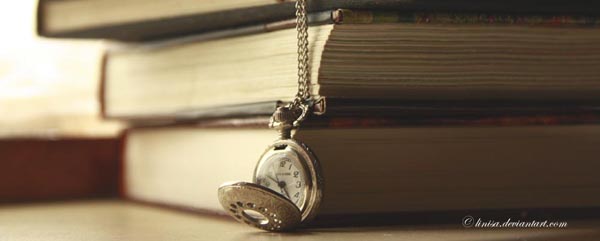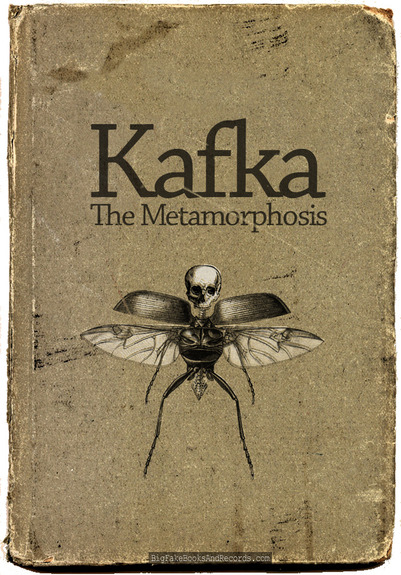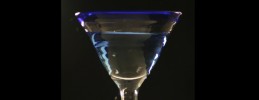
photo by Linda
by G. F. Phillips
Franz Kafka commonly used the initial ‘K’ for himself, in his two novels The Trial and The Castle, and in some of his tiny tales as well. This one-letter tag is completely in character, for K was interested in the idea of disguise in many of his stories. In ‘The Burrow’, he sees his adventures with a village mole through that creature’s point of view. In ‘Investigations of a Dog’, the wandering views of an individual dog relate to the quest for self. And in the extended story ‘The Metamorphosis’, the central character is immediately faced with a sudden and overwhelming predicament of identity – and what a predicament:
As Gregor Samsa awoke one morning from uneasy dreams he found himself transformed into a gigantic insect.
K creates ‘what if’ conundrums. Gregor must immediately come to terms with this startling new discovery. It also holds an important lesson for me as a writer. By presenting a unique dilemma in a strangely matter-of-fact way, K creates a story that is immediately arresting. A pivotal change, one that is both physical and mental, sets in motion the story’s sense of conflict and urgency.
Transported into Gregor’s mind, we become intimate with his thoughts, at once human, but also outwardly animal. Since the collapse of his father’s business, he has been the family’s one provider. He had a plan to finance his sister’s education so she could learn to play the violin at a nearby conservatoire, thanks to his promotion from humble clerk to commercial traveller. But now, because of his unenviable transformation, he himself has become the financial liability.
Gregor’s first thoughts are of overwhelming confusion, disbelief and fear. Having already locked his bedroom door as a matter of habit, he has to explain everything in a non-human voice to an abjectly bewildered family. Usually a self-directed man who spends much of his time on the road trying to sell samples, Gregor is now the victim of his family’s resentments, contempt and fear as they confront the truth of his new insect form.
Everyone who comes into contact with Gregor reacts in their own way. The doctor is unable to give him a thorough physical examination and merely dismisses his case. The chief clerk, who originally found Gregor as ‘quiet, dependable’, now believes he is ‘obstinate’ and resorts to telling him some home-truths about his real abilities at work. His mother, Anna, repulsed as they all are, shies away from her son’s predicament. Meanwhile, his father, who was calm at first, becomes abusive and violent towards Gregor, clouting him with a walking-stick. Gregor is humiliated and dehumanised until he is little more than a foreign body within the household. He has upset the habitual routine of the family – meal and work times, the household chores – and these simple routines are now a daily challenge; a two-way struggle between victim and ‘loved ones’, with no apparent end in sight.
This struggle is most obvious in the relationship of Gregor and his sister:
…if he could have spoken to her and thanked her for all she had to do for him, he could have borne ministrations better; as it was, they oppressed him. She certainly tried to make as light as possible in whatever was disagreeable in her task, and as time went on she succeeded, of course, more and more, but time brought more enlightenment to Gregor too. The very way she came in distressed him.
Cut-off as Gregor is, he relies heavily on eavesdropping to ascertain what the family plan to do for — or to — him. He is spoken about rather than spoken to. His sister leaves a selection of food on an old newspaper, a catalogue of images that reveal the poverty of his state:
There were old, half-decayed vegetables, bones from last night’s supper covered with a white sauce that had thickened; some raisins and almonds; a piece of cheese that Gregor would have called uneatable two days ago; a dry roll of bread, a buttered roll, and a roll both buttered and salted.
 In time, his surroundings are cleared: his writing-desk, his tools and chest, all that he loves. However, as his mother and sister go to remove ‘the picture of this lady muffled with so much fur’ from his wall, Gregor finds he has endured enough. He flies at them. Gregor’s father then enters the action and bombards his son with red apples.
In time, his surroundings are cleared: his writing-desk, his tools and chest, all that he loves. However, as his mother and sister go to remove ‘the picture of this lady muffled with so much fur’ from his wall, Gregor finds he has endured enough. He flies at them. Gregor’s father then enters the action and bombards his son with red apples.
Things go from bad to worse. The fracas causes the family’s servant girl to leave. By now the family are in a fraught state; they begin selling their ornaments. They take in three lodgers who regard Gregor as a source of entertainment, a kind of freak show, much more entertaining in fact than his sister’s violin-playing.
It is ironic that when Gregor has outlasted his usefulness in the family, it is the most loyal-at-times-sister who first decides: ‘we must try to get rid of it’. Gregor, half-human, half-insect, dies, sparing the family further ordeals. The story ends on the hopes of Gregor’s sister’s future:
It struck both Mr and Mrs Samsa, almost at the same moment, as they became aware of their daughter’s increasing vivacity […] she had bloomed into a pretty girl with a good figure […] it would soon be time to find a good husband for her.
Kafka, a writer of dream, allegory, fable and fantasy, nevertheless invokes a sharp and uncomfortable sense of morality. Indeed, I would argue that ‘The Metamorphosis’ although an especially vivid example of literature of the fantastic, bears some of the hallmarks of Émile Zola’s laboratory technique. What Zola did was to put a character into a given situation to see how he or she would behave; how they would react to a moral dilemma, a given set of circumstances or an abiding issue. This is exactly what K has done in this ‘what if?’ story. But, unlike Zola, K is less interested in the scrutiny of characters in society than in our most human states of mind. His drive, in other words, is more psychological and philosophical than naturalistic. In the end, Gregor’s testing times are also our own – as we too search for a sense of belonging in a world that often seems hostile to our innermost selves.
~
G.F. Phillips also wrote Listen and Be Heard, about the spoken word site Listen Up North.


A thoughtful and helpful article. I would take issue with the idea that Kafka used ‘K’ to refer directly to himself – it was rather aspects of himself which he explored in this way. But perhaps that is not so different – I just think we need to be wary of regarding fiction as autobiography
For some illuminating points on the idea that Gregor must immediately come to terms with becoming a vermin, see Todorov, Tsvetan (trans Richard Howard) (1970) The Fantastic: A Structural Approach to a Literary Genre. Ithaca, USA: Cornell University Press. In the last few pages, Todorov posits ‘The Metamorphosis’ as a new mode of story, characterised by the ‘adaptation’ (by the characters, and also by the reader) from an inexplicable to a normative state.